|
Ilsham English Hub are pleased to host the following free CPD sessions in the Autumn Term. Gill Jones HMI English Talk Thursday 29 September 2022 | 1600 - 1700 | Online Gill Jones HMI, Deputy Director, Schools & Early Education will talk about learning to read and write, drawing on research from Ofsted English Research Review and the implications for teachers of primary age children. The session will cover communication and language, phonics, handwriting, transcription and comprehension and Gill will be joined by Kirsty Godfrey HMI, Specialist Adviser. N.B. This session will not be recorded. Teachers as Readers Group | Open University/UKLA Ilsham English Hub Session 1 | Wednesday 12 October 2022 Session 2 | Wednesday 23 November 2022 Session 3 | Wednesday 18 January 2023 Session 4 | Wednesday 15 March 2023 Session 5 | Wednesday 24 May 2023 Session 6 | Wednesday 21 June 2023 From 1600 - 1730 Open to all! These six informal, friendly and supportive sessions will help to develop evidence informed practice, widening knowledge of children's literature and other texts, enriching Reading for Pleasure pedagogy and documenting the impact of children as readers. There is an expectation that attendees will try to attend all the sessions. Transforming your School Reading Culture Core Session 1 | Wednesday 12 October 2022 | Reading for Pleasure: a Whole School Culture Core Session 2 | Wednesday 23 November 2022 | Creating Whole School Change Core Session 3 | Wednesday 18 January 2023 | Creating a Reading School: Structural Changes Core Session 4 | Wednesday 15 March 2023 | Creating a Reading School: Behavioural Changes Core Session 5 | Wednesday 21 June 2023 | Celebrating Impact and Sustaining Change From 1230 - 1500 Transforming your School Reading Culture is a sustained, research based CPD programme aimed at Primary English Leaders. The group looks to develop a whole school reading community and culture and will be facilitated by Danni Cooke and Carly Watson. Participants can benefit from five core sessions plus ten optional workshops. It is however, necessary to sign-up to attend all five core sessions to be part of the group. In between the five sessions, participants complete gap tasks related to developing participants’ own knowledge of children’s literature, understanding of reading for pleasure pedagogy and developing the reading for pleasure culture in their school. Those who commit to the programme will be expected to attend all sessions. N.B. This is currently not open to Wave 4 Partner Schools - if this is you, then please, send email Danni Cooke. The optional online workshops will run from 1600 to 1630 on the following topics:
Further details to follow on dates and times. Contingent Talk Session 1 | Thursday 10 November 2022 Toolkit Focus: Why do books matter so much? What is child-led book talk? Gap Task: Book talk and complete the pre-project survey. Session 2 | Thursday 19 January 2023 Toolkit Focus: Quick reflection on first session. Gap Task: Set up a timetable for sessions and start note-taking. Session 3 | Thursday 23 February 2023 Toolkit Focus: Quick reflection on the last session and troubleshooting. Gap Task: Film yourself with one of your target children and choose a snippet to share. Session 4 | Thursday 4 May 2023 Toolkit Focus: Reflection. Gap Task: Complete survey From 1400 - 1500 The structure of this work will be four sessions led by Danni Cooke, Ilsham and Rowena Lucas, Ilsham and Ramsbury English Hub Leads and the focus will be on Early Years Foundation Stage (nursery/pre-school included, but can be bridged into Year 1). In-between each session, participants will be invited to try out the strategies that they explore to ensure that they reflect on the previous workshop. This work is open to a maximum of 20 schools. N.B. This is currently not open to Wave 4 Partner Schools - if this is you, then please, send email Danni Cooke. Schools will need to sign up for all four sessions and as a commitment to the sessions will be sent two books for use in the work. Ilsham English Hub Showcase Thursday 6 October 2022 | 0900 - 1200
We recommend Heads of School, SLT, Reading/Phonics Leaders attend this session. This showcase has been updated in accordance with current up-to-date documentation and priorities. Some schools might be eligible for a total of £160 funding each to support supply cover to attend. Schools will be assessed for eligibility when spaces are booked. If supply cover has been given in previous years, then it cannot be claimed again. Oral Blending and Segmenting and Soft Sounds Thursday 6 October 2022 | 1600 - 1700 | Ilsham English Hub This workshop will look at the importance of the foundations of understanding the skills of oral blending and segmenting and soft sounds and will be useful for any colleague who wishes to develop their understanding of the foundations to build effective phonics learning. Nurseries and Pre schools are welcome to attend. The Role of the Reading Leader (Autumn 1) 14 October 2022 | 1130 - 1300 | Online This webinar will look at the key priorities for this point in the term as the reading leader and will be run every half term with a different focus to enable leaders to develop in the reading leader role. Contact Ilsham English Hub will also be booking audits for the Autumn Term where they can look at personalised support and access to funding. Please contact Danni Cooke if you would like to find out more.
0 Comments
We recently saw the release of the Government’s response to their consultation on the proposed Data Reform Bill. It is still early days for the proposed legislation and there is a lot to go through from this response. In addition, the timeline for the new legislation and exactly what it will look like based on this response is unclear at this stage. But our sponsor, SchoolPro TLC, has looked at the consultation outcome and you can read their initial reaction and thoughts about how it might impact on working with schools in the future. Privacy Management Programmes to be a Compliance Requirement This is one that we have been expecting and we have built the online audit/accountability tool in the new portal with this possibility in mind. Essentially, the proposal is to reduce down the accountability requirement to the following six key areas (from the current ten):
This potentially simplifies the process and our audit tool has been developed to be fully configurable. So, if this change goes ahead as suggested, the existing tool can be adapted to the new Privacy Management Programme and relevant information, actions etc already in the tool, can be ported across as required. The Government have been keen to highlight that this is not to reduce the rigour of accountability and lower standards, but to create a more flexible tool that can scale depending on the risk level of the organisations. This may well ease some of the burden on smaller schools, for example. Data Protection Officers (DPO) to no longer be mandatory and to be replaced with a ‘senior responsible individual’ This proposal removes the need for an independent DPO with no conflicts of interest and allows the role to be taken on by a senior individual within the organisation. That person will still fulfil many of the existing roles of a DPO, so it is likely that many organisations will simply continue with their existing arrangement. The ‘senior responsible individual’ will be responsible for:
At present, it is not fully clear if this will apply to all organisations; or whether it will be only small organisations and those that do not process high levels of sensitive data that are able to drop the requirement for a “DPO”. We are obviously going to keep a keen eye on this one! Removal of Data Protection Impact Assessments (DPIAs) The thought here is to provide a more flexible and tailored approach to organisations. Again, the Government are keen to emphasise that this is not to reduce rigour and lower standards and they state that organisations will still have to identify, assess and manage risk. This may allow for a more risk-based approach where lower risk processing has a simpler risk management approach and higher risk processing still follows a similar DPIA process to what is currently in place. However this is implemented; thankfully, this should not involve new risk management for legacy systems as the Government has stated that “existing DPIAs would remain valid as a way of achieving the new requirement. Removal of the Record of Processing Activities (RoPA) Requirement As with DPIAs, this is to provide a more flexible approach that can be tailored to different organisation depending on size and the nature of their processing activities. This will link to the Privacy Management Programmes and will require organisations to have “personal data inventories” that “describe what and where personal data is held, why it has been collected and how sensitive it is.” From what we have read so far, we believe that our existing data mapping tool will allow for these inventories to be created still with very little need to be adapted from their current format. Those are a few of the points we think will have an immediate impact on schools. Of course there are more detailed analyses of all the proposals available online, such as this useful one from the IAPP: It is also clear that not everyone is happy with the proposals.
Reading through the response, the prevailing theme appears to be “we asked about this, most of you weren’t happy with proposed changes… so we’re going to make some anyway;” which is an interesting approach to a consultation. All we can say is, watch this space… Report by Ben Craig CIPP/E, Director of SchoolPro TLC Ltd Last week, the Department for Education (DfE) presented a live webinar to discover how to support staff at all levels and access the wide-ranging support available from the Department to improve staff experiences and ultimately improve pupil outcomes. The event also featured guest Headteachers who shared their passion for teacher development and discussed examples of how the programmes are supporting the staff and young people in their settings. The webinar included:
To watch the webinar recording, click on the link below and you can also download a copy of the PowerPoint presentation and collated Q&A document.
 Welcome to Issue 12 of the SWIFT Events Newsletter You will find courses, events, conferences and training from our partners to support your professional development and enhance the work of your school. Simply click on the booking link to the course you are interested in to get more details or book straight on! Featured in this Issue: Subject Leader Briefings | FREE to SWIFT Members These termly meetings are an opportunity for subject leaders to keep up to date with national and local priorities, develop leadership skills, network, share ideas, enhance teaching and learning, and provide input that is useable in classrooms. • Primary Maths Subject Leader Briefing | Kate Lee | 13 October 2022 • Primary Science Subject Leader Briefing | Allie Beaumont | 30 September 2022 • Primary English Subject Leader Briefing | Maria Richards | 3 November 2022 Highlighted Programmes:
 The Met Office has warned that temperatures could hit 43C over the coming week, which would make it the hottest day ever recorded in the UK. Our sponsor, Wolferstans Solicitors, provides some guidance for employers as summer temperatures soar. If it’s too hot to work, can employee’s leave? Under UK law there is currently only a minimum working temperature set, which is 16C. However, if the employee’s work involves rigorous physical effort, the temperature should be at least 13C. There is unfortunately, no meaningful figure that can be placed on high temperatures, to indicate if it is in fact too hot to work. That said, employers are responsible to ensure their employees and workers are comfortable and in their working environment. This extends to helping them keep cool. Health and safety should also factor into an employer’s consideration as to whether it is too hot to work. Can employee’s legally ask for air conditioning in their workplace? Employers are obliged to keep employees comfortable, which falls within them needing to ensure the working environment is of a reasonable temperature for those using it. From this, the concept known as "thermal comfort" has been established. By managing the thermal comfort within the workplace employers are more likely to improve morale, productivity and health and safety. The Health and Safety Executive note the six basic factors to cause temperature discomfort are:
A way in which they suggest you can control the thermal comfort of these factors is by using air conditioning units or air dehumidifiers. If you want further advice on whether you should be installing air conditioning, as you feel are having employee complaints about the temperature in the workplace, then please get in contact via the below contact details. Do employees have to wear their usual work attire in sweltering heat? This very much depends on the organisation. For example, if you are employing tree surgeons you would not be complying with the health and safety laws and organisational policies if you allowed you employees to not wear their personal protective equipment, such as the thick heavy chainsaw trousers which they most likely do not wish to be wearing on an extremely hot day. In circumstances where it is reasonable for there to be a flexible dress code, such as in an office environment, employers should be doing this to help with employee’s thermal comfort and productivity. If in doubt whether this applies to you, the Health and Safety Executive provide further information on this. How else can employers ensure that "thermal comfort" is managed well? Hybrid working is becoming increasingly popular and making the most of this on an extremely hot day could benefit employers and employees. Employers need to consider whether the building they have is equipped for a heatwave. In doing this they should factor in whether there is a lot of glass, if it is an older building, whether there is good ventilation, and whether or not they already have air conditioning installed. Employee productivity could be higher, should they be allowed to work from home in a cooler environment. If this is not possible then employers need to control the thermal comfort of their employees in the workplace as best as they can, given their circumstances. Ways to do this is by providing fans, if safe to do so, in the event they do not have aircon. If you have any concerns over your workplace, or employees refusing to attend work during the heatwave, please make contact via our new enquiries section of the website. By Rachel Lee, Wolferstans Solicitors 1400 - 1645 | Online About Curriculum Forums The SWIFT Curriculum Forum brings together curriculum leaders that have responsibility for building curriculums in schools and trusts. Curriculum Forums are termly events that cover four aspects of curriculum:
Part A - Keynote Speakers Kat Howard | Leading Principles for Curriculum Development In this session, Kat will share key insights as part of her work with schools and Trusts to create the conditions that enable meaningful curriculum development. Colleagues should expect to take away practical strategies to undertake in-house curriculum review and supportive processes to ensure that all staff consider how their everyday work has implications for the effectiveness of the curriculum. Dr Marlon Moncrieffe | Approaches to Decolonising Curriculum Knowledge Marlon will share his research work concerning decolonising curriculum knowledge (primary school history curriculum aims and contents). He will also discuss his engagements with UK Parliament and the House of Commons Education committee in sharing this work. Also, his work with the Chartered College of Teaching, and some of the resources that they have created in championing inclusive and equitable approaches to education, teaching and learning. Part B - Workshops Holly Pennington | Early Years | Language Led Learning – closing the word gap in the Early Years Amy Le Bredonchel | Primary | Curriculum Design: Knowing, Thinking and Communicating Ruhaina Alford | Primary | Whose Culture has Capital? Approaches to diversifying your curriculum to prepare children to be global citizens Toni Smyth | Primary | Supporting primary schools to transform PE experiences for EVERY child, teacher and family Anthony Lees | Primary | Approaches to Formative Assessment in Primary Computing Matt Pennington | Primary | How can Cognitive Science Drive Greater Outcomes for Early Readers? Annabel Skelton | Secondary | 'Book Club': The Jewel in the English Curriculum Crown Jason Scott | Secondary | Design of Humanities Curricula Tom Graham | Secondary | Prioritising the curriculum at a whole-school level Harriet Marshall | Crossphase | A curriculum that prepares for life, learning and work through the UN’s Sustainable Development Goals Forum Registration To book your place please complete the registration form by clicking the booking button below. The event is free to colleagues from SWIFT Member schools and £50 to colleagues from other schools. Contact us: If you have any questions, please contact Nicky Sheppard [email protected] 11/7/2022 0 Comments Can forcing the use of transgender preferred pronouns amount to discrimination?In short, it will depend on the facts!
Let Wolferstans solicitors, one of our sponsors, guide you on this potential discrimination issue. Wolferstans provide a wide range of legal services to meet the needs of individuals, families, SME’s, public sector and voluntary organisations based throughout Devon and Cornwall. Background In the case of Mackereth v (1) Department for Work and Pensions (“DWP”) and (2) Advanced Personnel Management Group (UK) Ltd, the question of whether it was discrimination to refuse to use the preferred pronouns of transgender clients was deliberated. The Claimant was a Christian doctor and provided health and disability assessments for the DWP. Early in his career, he stated that due to his religious beliefs, he would not use the preferred pronouns of any transgender clients; however, this was in contradiction to the DWP’s policies, which stated that those undergoing transition should be referred to by their presented and preferred gender at all times. Clearly the Claimant was going to be in breach of this policy, so decided to resign and bring a claim in the Employment Tribunal. Christianity, as a religion, is a protected characteristic, but this was not the issue in this case; rather it was whether he could demonstrate that his beliefs that a person cannot change their sex/gender, that it would be irresponsible for a health professional to encourage transgenderism and his lack of belief in transgenderism generally could amount to direct discrimination, harassment and indirect discrimination. Ruling The Employment Tribunal held that the Claimant’s beliefs did not amount to protection under the Equality Act, and further, even if they had done, he had not suffered any less favourable treatment/harassment. Further, the DWP’s policies were justified and were necessary and proportionate in meeting their legitimate aim of ensuring that transgender clients were not discriminated against and were treated with dignity and respect. The Claimant was clearly not happy with the decision and appealed to the Employment Appeal Tribunal. Unfortunately for him, the EAT agreed with the initial decision, finding that he had not been subject to discrimination. Although, the EAT did point out that some of his beliefs would qualify for protection under the Equality Act. How does this impact employers? One reason that the Claimant’s claim failed was that his employer had tried to accommodate his beliefs, but he had resigned before they were able to implement any strategies and adjustments. Employers should ensure that if they require employees to use certain terms when dealing with transgender clients, the requirement is proportionate to achieving a legitimate aim, for example treating those clients with respect and promoting equal opportunities. If you would like any further advice, or would like us to review any policies then please get in touch with a member of the team on 01752 663295. ESW Associate & Strategic Leader of Teaching & Research Schools | Education South West Roger Pope CBE opens this July issue by considering whether we're facing a return to the 1970s. But...
"Research now trumpets that a culture of professional support and development in a school is what makes the difference to the effectiveness of teachers. Finally, we have a White Paper that values that culture, the funding to underpin it, and a system of Teaching School Hubs to help you to make it happen." This final issue of the school year includes a report on the SWIFT Summer Conference, A Theory of Change as an Implementation Tool for Professional Development, Michael Rosen's reading for pleasure top tips, an interview with NPQ Facilitator, Esther Best + more besides AND features from our sponsors. As part of SWIFT’s commitment to creating high-quality opportunities for staff to learn, develop and connect, we are committed to providing meaningful professional development to support all children and young people, including disadvantaged children and those with SEND in order to help them to achieve the best educational outcomes. SWIFT has evolved their CPD SEND programme to bring up-to-date and practical training for colleagues to take back helpful strategies and knowledge into their own educational settings. Course Structure The SEND series for 2022 – 2023 consists of three sessions, all of which are online. Session 1 | Teaching Assistants New to the Role Tuesday 27 September 2022 | 1100 – 1200 | Online This session will enable Teaching Assistants who are new (and not so new) to their role to develop a vision of what exemplary practice looks like. With reference to Professional Standards, research and recommendations, this session will reflect on the role of the Teaching Assistant and begin to develop relevant skills and knowledge when supporting children and young people with SEND. Cost | SWIFT Members £30 | Non-Members £40 per person. PLEASE BOOK BY Thursday 22 September 2022. Session 2 | Dyslexia SEND Training Tuesday 7 February 2023 | 1100 – 1200 | Online This session is for staff at all levels to support dyslexia in the classroom. Practical guidance will provide support in how to deliver interventions and work with pupils with dyslexia and dyslexic traits. Cost | SWIFT Members £30 | Non-Members £40 per person. PLEASE BOOK BY Thursday 2 February 2023. Session 3 | Governor SEND Training Tuesday 6 June 2023 | 1800 – 1900 | Online Every Board of Governors is responsible for holding leaders to account for the education of learners with SEND. This session will help Boards to deliver effectively on this responsibility and ensure that they have a positive impact in their setting with regards to outcomes for learners with SEND. Governors will be supported in how to ensure that their setting has robust systems to cope with SEND and to understand SEND on the frontline. The session will also consider the basics, including definitions of SEND and the SEND Code of Practice, and the national picture, sources of information and recent developments. Delegates will receive the tools to evaluate their school’s SEND provision and to consider strategic leadership, accountability, structures and processes and people management. Cost | SWIFT Members £30 | Non-Members £40 per person. PLEASE BOOK BY Thursday 25 May 2023.  Course Leader Karen Sewell was previously the SENDCO at Kingsbridge Community College and is an experienced SEND SLE for SWIFT and a SEND Associate for Education South West and she is also a SEND Governor. Karen also undertakes two-day SEND or Teaching Assistant Reviews to support provision within a school setting. More Information
“Every child should benefit from a broad, ambitious, knowledge-rich curriculum, taught by highly skilled teachers.” (White Paper, 2022) We are pleased to bring you our new Masterclass series as part of our CPD Programme for 2022 – 2023. Masterclasses are subject-specific programmes with a focus on curriculum, teaching and assessment. Many are led by external subject experts with a national profile who are celebrated authors and speakers, and also include Ofsted inspector subject specialists. The year-long programmes at both primary and secondary are designed to boost teachers’ subject knowledge through enjoyable and edifying topics, plus the opportunity to network with like-minded subject colleagues. Primary English | Writing Matters - Enabling Achievement for All Session 1 - Understanding How we Write: Different Perspectives on Writing. Session 2 - Grammar as Choice: bringing language and meaning together. Session 3 - Going ‘Meta’: metacognition and metalinguistic understanding of writing. Session 4 - Writing across the Curriculum. Session 5 - Creative and Critical: Workshop Approaches to Writing. Languages | Effective Assessment in Primary Languages and Transition to Key Stage 3 Part 1 - Effective and time-efficient ways to assess Primary Languages attainment at Key Stage 2 Part 2 - Ways to establish and maintain links between primary and secondary schools Languages | Why Phonics Teaching in MFL is so Important ‘Why is teaching Phonics in MFL so important?’ Geography | What Does High Quality Teaching and Learning Look Like? Children as Geographers Session 1 - Environment Session 2 - Place and location Session 3 - Processes Session 4 - Diversity Session 5 - Sustainability History | What Does High Quality Teaching and Learning Look Like? Children as Historians Session 1 - Continuity and change Session 2 - Sources Session 3 - Significance Session 4 - Similarity and difference Session 5 - Causation and consequence Secondary English | Making Meaning in English with David Didau Session 1 - Intent Session 2 - Implementation Session 3 - Impact Session 4 - Responses to participants MFL | Masterclass Series Session 1 -The new GCSE and implications for teaching at KS2/3 Session 2 - Phonics Session 3 - Vocabulary Session 4 – Explicit Knowledge Session 5 - Use of the Target Language Session 6 - Quick wins for Year 11 Science | Masterclass Series Session 1 - Modelling in Science Session 2 - Checking for understanding Session 3 - Retrieval practice and strategies for long-term learning and memory in Science Session 4 - Assessment Session 5 - Curriculum Design Session 6 - Marking in Science/Whole Class Feedback in Science Geography | Role and Practice of a Knowledge Rich Curriculum Session 1 - The Opportunities and Challenges of a Common Curriculum Session 2 - Making the Most of Fieldwork Session 3 - Achieving Curriculum Coherence Session 4 - Selecting and Contextualising Case Studies Session 5 - Ofsted Speaker (to be announced) History | Knowledge and Skills for Teaching Session 1 - Literacy and Vocabulary, "The Power of Words" Session 2 - Assessment in History Session 3 - Revision Strategies in History Teaching Session 4 - Local History: the pleasures and the pitfalls of researching disability History Session 5 - A Representative Curriculum: Diversity in the History Curriculum Find out more here and book your place
Can you inflation-proof your finances?
Our sponsor, accountants, Milsted Langdon based here in the South West, provides advice on the impact of rising inflation. Inflation is rising at a rapid rate in the UK. In fact, according to the latest figures, it surged to 9.1% and expectations are that it will peak later in the year at 11%. The rapid rise of inflation is being fuelled by the Russian invasion of Ukraine which is having a direct impact on global energy prices. The pandemic is still heavily affecting China, resulting in the closure of their ports, which is impacting on product distribution. The Bank of England has already acted by increasing the base rate to 1.25%, and for those with debts, this may mean that they face higher costs over time as the banks increase their interest rates. Erosion of Purchasing Power One of the key net impacts of rising inflation is that it kills the purchasing power of your capital, i.e. the pound in your pocket (or more likely your bank account) is effectively worth less in future – you will not be able to purchase as much with the same amount. Currently, inflation is far out-pacing interest on cash saving accounts. Is it possible to protect wealth and savings against inflation? As with most things in finance, it often comes down to careful and regular planning. We believe savers and investors need to adapt their current wealth, protection, and pension plans to ensure they are on track. Rather than waiting for things to improve, now is the time to be seeking independent financial advice so that you have the best possible chance of retaining wealth and achieving your financial goals through effective investment and saving strategies. If you need assistance with weathering the storm of high inflation, please contact us.  “I’m proud to be helping to develop the next generation of Headteachers for schools. We need them!” Headteacher of Oreston Community Academy in Plymstock (Westcountry Schools Trust) since January 2019, Esther Best has long been a champion of school leadership. Esther is one of our National Professional Qualifications (NPQs) Facilitators working with national delivery partners, Teach First and Leading Schools South West (LSSW). The fully-funded NPQs are part of the Department for Education’s post-Covid-19 recovery essentials. Recruitment for Cohort 2a - due to commence in the Autumn Term - is now underway and take-up from middle and senior leaders across the region is higher than ever. As a seasoned NPQ Facilitator we asked Esther about her role. 1. How did you come to be an NPQ Facilitator? I was approached by Bob Mitchell (now Leading Schools South West’s Managing Director) who I knew from when he was my Facilitator when I was undertaking the NPQH myself back in 2013. That was when NPQs were part of the now obsolete National College for School Leadership. Prior to this, I also participated in the Leadership Pathways programme as well as completing the FastTrack Teaching Leadership Programme, both part of the National College. These were both invaluable leadership stepping stones to support my move to Deputy Headship, and then to the role as Headteacher here at Oreston. The lovely thing was that I’d been part of Bob’s first NPQH cohort as a participant when he was a new Facilitator. I then had the privilege of delivering alongside Bob as a new Facilitator whilst he was delivering his last ever cohort. It felt like I was taking up the mantle and following in his footsteps. I then reapplied to deliver the new NPQs and I was pleased to be successful in being able to continue my role. 2. What made you accept the role as an NPQ Facilitator? I was excited, honoured and delighted that Bob invited me to take up the role! Bob and I have similar leadership styles and I’ll always be grateful that he could see my potential to do this role. Bob had a secondary background and so I learned a lot from him that has since supported my delivery to colleagues from the secondary sector. I’ve always been passionate about school leadership development and I’m fortunate that someone invested in my development through the NPQH programme and other programmes that I mentioned earlier. Plus, I’ve always been keen that future leaders have their opportunity to develop and am really glad and fortunate to be part of this process. I’m also an impassioned advocate of selling Headship! We need to tell the world that it’s a very rewarding job and I think it’s the best job in education with so many positive aspects (but that would be another interview topic). 3. What have been the challenges in the role? I started Cohort 1a in Autumn 2020 in the midst of Covid – which certainly had some challenges! Previously, I was a Facilitator for the “old style” NPQH and I’ve had to adapt to the new leadership style of approach and delivery - moving from traditional face-to-face sessions to learning how to deliver virtually. So, as we’re now opening up again to a blended way of working for the NPQs, I’m feeling well equipped for the new style NPQs: NPQs in Leading Literacy (NPQLL) and NPQ in Early Years (NPQEY); which will have two face-to-face conferences. 4. What have been the drawbacks (if any) to leading online seminar delivery? When you’re leading online training, it can sometimes be hard to read the room and when you might need to discuss a point in more detail. It also increases the pressure on you to be super-clear about the content as you don’t always have the background; plus, discussion and thinking time can be minimal as the session is more content-led. But as I’ve adapted and embraced the video conference technology, I’ve used breakout rooms for group discussions and the new programmes are adapted for more interaction for Programme Members. 5. What do you find to be most rewarding as an NPQ Facilitator? Without any hesitation - seeing the growth in the Programme Members as they progress with their NPQ study and how they tackle scenarios. It has been so rewarding when some have commented how their learning as a leader has fused through the Modules and their experience in school. Also, watching how they have learned to be reflective and how this has successfully developed over time. Importantly also, as a growing leader, avoiding the situation of challenge before support, recognising that as leaders, we must be reflective to ensure that we have covered all basis and provided support first. I enjoy watching the knowledge, experience and confidence grow with participants and the networking that takes place throughout. Leadership at its best. 6. How does your role as a Facilitator support your work as a Headteacher? As a Headteacher who has been in this role for 10 years, it is valuable to revisit the fundamentals of successful leadership and why actions take place when and how they do. The research behind successful leadership is always good to revisit regularly so that we continue to be highly reflective as leaders to ensure we are doing the best for our schools and the children and communities we serve. I’ve really valued facilitating the NPQs to continue to be reflective in my leadership style and of my leadership team in my school. It is also thought provoking as different research is added into the programme such as the COM-B Model for Behaviour Change. Previously also, I used the funding for my role as a Facilitator to finance my school leaders to undertake an NPQ and fund their supply costs and release time as part of supporting the leadership cycle. But obviously, all the NPQs are currently fully funded by the DfE, which is a great bonus as it means we can use the funding for supply and more staff can access the NPQs. 7. Have there been any other additional benefits for your role as a Facilitator? I couldn’t do the role without my co-Facilitator, Simon Spry, Chief Executive Officer of the Learning Academies Trust. I’ve valued how we’ve complemented each other in our delivery with our different skill sets and I’ve also learned from his experience of working for a Multi Academy Trust in a different area to my school in Plymstock. Working with Simon has made the experience all the more enjoyable and I’ve gained from working with another CEO and learning from his school and Trust case studies. 8. How have you found the Teach First and Leading Schools South West seminar/conference materials? The Teach First materials and programme of study have been excellent and in particular the Programme Members have enjoyed the thought-provoking scenarios in conjunction with the Brightspace online learning to support them. The comprehensive Teach First Modules have meant that I’ve had to do minimal preparation for the content and I can focus on the delivery and interactive elements of the seminars. Equally, the LSSW materials for the conference days have been very instructive and intuitive and a pleasure to use. Both make it easy for me as a Facilitator to bring the learning together and to bring my own experiences to the training and I would like to thank both Teach First and LSSW and for their guidance and supportive content. We thank Esther for her insights and for being a champion for the NPQs and school leadership and may she continue to relish her role as one of our NPQ Facilitators. Interview by Jude Owens, PA to the SWIFT Executive Team You had to be there. And we’re grateful to our partners, school colleagues and everyone who was with us for the 2022 SWIFT Summer Conference on the last Thursday of June, both in person at Exeter Racecourse and online. As SWIFT Director Martin Smith said in his opening welcome; as well as listening to our high calibre speakers, SWIFT wished the conference to be an opportunity for colleagues to network; as well as boost their professional development “to help make a difference to what you do in connecting and sharing new ideas.” Next up, SWIFT Strategic Leader, Roger Pope CBE led his welcome with historical highness – equipped to do so having started his own educational journey in 1979, only to be observed teaching an astonishing 40 years later! With his time-honoured thinky presentation Roger harked back to 1976 when Prime Minister Callaghan inaugurated the great educational debate about improving standards in a school system run by Local Education Authorities; followed over a decade later in 1988 by Kenneth Baker’s Education Reform Act bringing autonomy for schools with local management, Grant Maintained Schools and City Technology Colleges; hand-in-hand with greater accountability through market driven schools, a National Curriculum, all to be measured by League Tables and Ofsted. Here we are, a few more decades on with the 2022 White Paper that decrees: “The quality of teaching is the single most important in-school factor in improving outcomes for children, especially for those from disadvantaged backgrounds…The evidence is clear that high-quality professional development can lead to improved children’s attainment.” Roger concluded on behalf of Colyton and Kingsbridge, two of the Department for Education’s national Teaching School Hubs working together as South West Institute for Teaching: “Our vision is to create world-class opportunities for staff to learn, develop and connect so that all children, especially the disadvantaged, achieve the best educational outcomes. Let’s do it together.” Without further ado, to the first keynote speaker. Diana Osagie, Founder and CEO of The Academy of Women's Leadership and author of “Courageous Leadership.” Diana presented (or rather proclaimed) on “How to be an Effective Resilient Leader in 5 Steps” with a call to cake in her empowering preamble for school leaders to “grow your metaphorical backside… as you’ll need a big one to sit comfortably, steady and not be easily rocked as the buck stops with the Headteacher.” Hard-nosed, hard-skinned, hard-everything! A tour de force thanks to her 16 years’ experience leading secondary education, including six years as a successful Headteacher in a London secondary school, Diana spoke from her experience at the cutting edge of education and school improvement. For her, it wasn’t the students who gave her issues, it was the staff! Diana learned from a great Deputy who was always needlessly checking in with her: “Just do It!” and she held a Head Surgery (note the catchy title) on Tuesdays from 1530 to 1730 for six years. Ten-minute slots. For anyone about anything. She never missed it. And that was as a teaching Headteacher (Physics, in case you were wondering – which has a certain pertinence having listened to her). Above all, when tackling those “wicked, knotty problems,” remember: “clarity is your best friend and assumption is the nemesis of leadership.” Or else, you risk the consequence of the issue becoming greater than the problem itself. So, to the to the DIANA OSAGIE WAY and here’s some of her resilience top tips: Understand the Steps of Growth when Guiding your Staff 1. I know 2. I understand 3. I implement If your staff are not willing, you’ll always be fighting “ad hoc fires that will erode your resilience and bouncebackability” (yes, it’s a word). So, follow those three steps… Deal with the Elephant in the Room Diana told the story of a church mother at her Pentecostal church who was the church announcer, but had an unfortunate knack for saying awkward things and the church leadership didn’t know how to handle her: “gaff upon gaff upon gaff…” However, she was influential. Diana was tasked with sorting this particular elephant and told her straight and yes…she assumed the role of church announcer! Sort of similarly, Diana didn’t like her Head of English (her best ever!) despite his outstanding exam results track record: 80% Grades A – C at GCSE in a school with language issues. But she learned how to deal with his sarcastic snidey comments. Find your elephants. MIC Maintain Improve Rid You’ll soon see the trends and patterns. Deal with the fires that matter and know that some things that you do are “rubbish.” Because you thought it, planned it, you might think that it should work. Wrong! That is only your opinion. It’s not a fact or “just because you have a title.” Admit it when you get it wrong. Don’t Attempt Leadership on your Own It’s foolish and dangerous. You’ll operate more effectively with a true peer – as do famous footballers, actors, singers who all submit to their coach, and director. Their veteran seasoned leader. Think how all the parts work together. Keep Your Advocate (in the corner) Someone who wants you to do well. “It’s your responsibility to secure the level of support that matches your level of authority.” Diana ended with a second rousing Call to Action: “Sort it out leaders!” - and buy her book! From resilience and courageous leadership to Ofsted with the next keynote speakers, James McNeillie HMI and Regional Director, Stephen Lee, presenting Ofsted updates, findings and questions. In his role as HMI, James shared how inspecting schools in England is “a privilege” and looking ahead to the next five years the focus will be on inspections to raise standards and the best start in life for Early Years and Foundation Stage, and testing schools’ safeguarding policies to keep children safe in school and contribute to their positive experience. Fundamentally, schools are required to provide a broad and balanced curriculum in the shape of the National Curriculum, and the Multi Academy Trusts’ rationale for their alternative curriculum will be tested during inspections. So, curriculum deep dives might be what schools are doing for those children who have missed out on reading (during the Covid-19 lockdowns) and what is their long-term plan? Or for disadvantaged and disabled children who are receiving extra help, but which means they are not getting full access to the curriculum. School Leadership team are invited by Ofsted to share their strengths and issues for development and to explain any adaptations. But, an important Ofsted caveat: today’s talk was not an Ofsted checklist! Rather, some suggested discussion points with leaders about their school’s implementation. And interestingly, James warned against SLTs wasting money on “Mocksted” consultants. One of the best ways to get up to Ofsted speed in person is to listen directly to talks from Ofsted inspectors – such as this SWIFT Summer Conference - and of very real reassurance for school leaders, James recognised that Ofsted are aware of the impact of Covid that has been incorporated in the next Ofsted Framework. So, to other updates, Ofsted will be consulting on a new framework from January 2023 and will be inviting leaders to give their views and thoughts. MAT summary evaluations continue to take place (not inspections) and will involve meetings between Ofsted and SLT. Stephen Lee reported on Section 5 inspections by region in which the most common judgement is Good and very pleasing for Ofsted and schools is that post-pandemic more schools have progressed from RI to Good. Perhaps of particular relevance and close to home consideration for some of our conference delegates the South West is below the national average compared to the rest of England, and some explaining factors might include, for example, the challenges of demographics of coastal areas. Around 23,000 schools are inspected in a normal year and are considered by Ofsted to be “a force for improvement…” that provides “an unrivalled insight as an organisation into effective schools.” SEND is clearly a key focus. Stephen considered high-quality provision for pupils with SEND and that adaptations can be made so that children with SEND are able to follow the same curriculum in the school or else the risk is a narrowed curriculum for them. Too often there is more focus on wrap around care than academic support. Reading is another key focus, with 40% of disadvantaged children not reading as well as their school leaving age along with 20% of other children. A love of reading feeds on itself: “Reading is the gateway to the curriculum” and sadly, children face “a lifelong disadvantage if they can’t read.” School leaders will be able to read the Ofsted Annual Report for more insights. 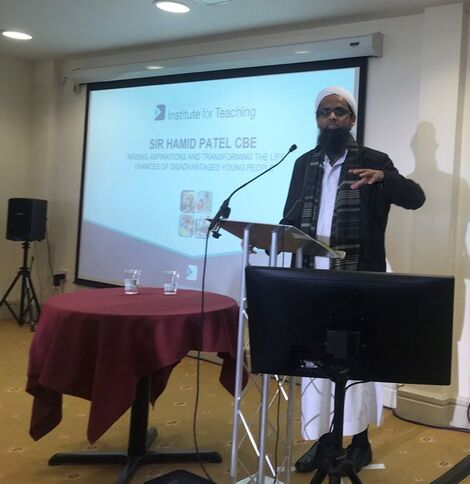 As Education South West CEO, Matthew Shanks noted in his introduction to the final keynote, if some parts of the country might conceive of a sleepy Devon with no issues, this was immediately debunked by, Sir Hamid Patel CBE, Chief Executive of Star Academies (who had been driven for five hours to Exeter from Blackburn) in his talk on Raising Aspirations and Transforming the Life Chances of Disadvantaged Young People: “Disadvantaged children are everywhere… The label should not make a difference. Successful schools create cultures that are homogenous, unified and cohesive and an equal part.” One of the essentials is to undertake interventions and to do the same as you do for everyone, but remove the barriers. This helps to close the gap and provide equal access for Pupil Premium children and young people. An impassioned Sir Hamid told how his Trust had bought school uniform for their disadvantaged children and going even further had organised for the uniform to be collected, washed and ironed and returned to those most in need. And times are getting harder. For one of their Bolton Trust school, a school trip to London was considerably subsidised. Some of the children had never been on a train! Their parents were invited to pay £5 a month and the school subsidised the remaining 75% of the trip costs. Making life-changing experiences a reality. “Set them up for success. Many are set up for failure.” School leaders were encouraged to triangulate when making judgements. Don’t compromise on quality. Work harder, smarter to make it count. Seek lots of small donations, rather than big donations to finance projects and make them happen. Decide five/ten (your number!) character-defining opportunities that you want the children and young people to experience: be it poetry, theatre, mountaineering, and that will have a positive impact on their confidence, self-esteem, resilience and cultural capital and link to the core curriculum. Don’t go to Ofsted for inspiration. They are the regulator for QA. Have the confidence to share ideas and bring to life real innovation and collaboration to transform outcomes for young people regardless of their backgrounds. Hold Careers Day with positive role models and a speakers’ programme (SWIFT knows about that!). Avoid “one-year wonders” as flash-in-the-pan SLT ideas. Do less, but consistently and regularly, year in year out. And do it well. Think about sustainability, scalability, and onwards delivery so that the change becomes part of your school culture. The Marginal Gains motto! Continuous improvement in all aspects. There are small gains to be made – everywhere! Think long-term about your school’s three, four, five-year plan. Sir Hamid told of James Bond "Jim" Stockdale, a US Navy Vice Admiral and Aviator and prisoner of war for over seven years in the Vietnam War and awarded the Medal of Honour. His optimism wasn’t like some of his fellow prisoners who were hoping to be released in unrealistic short timeframes. Stockdale “confronted the brutal reality on the ground” and was optimistic over a long time and that’s why he survived. Get your staff to commit: “Be a bit better than last year.” Maybe work with your RI teacher to help them get better, rather than get rid and start again. Celebrate what staff get right, not wrong. Underperforming, broken schools tend to be broken across the whole school. Build on an RI school’s strength – find any “nugget” to re-build and create an action plan for improvement. Seek to improve – even the small things. For example, a Sports Day letter to parents. Don’t simply use a repeat letter and only change the date and resend. Improve it. Format it well. QA it! Teachers always tell children to present their work well. Think about weekly briefing notes. Use as an opportunity to plan the week well. Workload issues are often last-minute changes that create unnecessary stress for staff. Be mindful of those event dates that are known in advance, for example, the annual World Book Day… plan in advance! Disadvantaged children have lots of challenges, so overcommunicate to support them and consider how you serve your evidence base. “The best schools are thinking schools…and all schools should be thinking schools.” It was both humbling and heartening to listen to Sir Hamid (not least a northern girl) and we thank him for making the journey to us and for sharing some of his tried and tested tips to raise aspirations of our disadvantaged young people wherever you may be. A memorably enriching part of the conference. As part of the well-rounded conference experience, delegates also enjoyed the opportunity to attend the following morning and afternoon workshops: A Year of Change in the EYFS: Impact and Opportunities Phil Armstrong | Head of Regional Development for the South of England, Early Excellence Effective Teacher Professional Development Sam Sims | Lecturer, Centre for Education Policy and Equalising Opportunities (CEPEO) at UCL Institute of Education How will our children feel about diversity if they live in an area with none? Ruhaina Alford | Executive Headteacher, The Carey Federation in Devon School Improvement: The Strategy and The People Sufian Sadiq | Director of Teaching School, Chiltern Learning Trust Lorraine Hughes | Director of Education, Chiltern Learning Trust Interrogating the English Curriculum John Tomsett | Former Headteacher of Huntington School in York and “This Much I Know” blogger Key Implementation Practices for School Improvement Jon Eaton | Director, Kingsbridge Research School and Research Lead, Education South West The Golden Thread' - three years on from the recruitment and retention strategy, the reality of implementation Graihagh Crawshaw | Director of School Leadership Programmes, Teach First Faye Craster | Director of Teacher Development, Teach First What really works for disadvantaged children? Jean Gross CBE | Popular speaker and writer and national expert on tackling disadvantage. You can read more about the workshop leads in the Conference Booklet at the end of this post. SWIFT Deputy Director for the Colyton TSH Chris Harris (on behalf of Colyton Grammar School’s Headteacher, Tim Harris) thanked all the presenters and workshop leaders for their motivating and meaningful talks and to all the schools and partners who have worked with SWIFT this year. With another nod to the White Paper, Chris reminded us all that it’s quality of teaching that is the single way to improve standards. 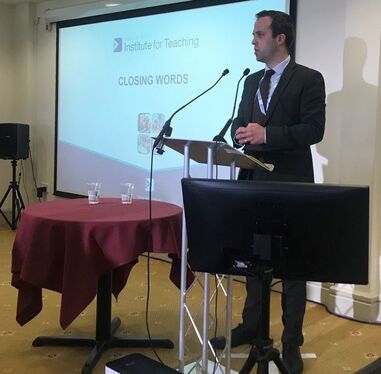 “Together, we’re better than the sum of our parts” - and like Chris’s three-year-old son, when asked what did he do at pre-school; today, we can also reply, “we did some learning.” Lots of learning. Martin Smith continued the thank yous and commended the speakers for their “rich eclectic leadership experience” and thanked SWIFT delivery partners, Cornerstone English Hub and Science Learning Partnership for being with us. Thank you to Martin Drew and Robin Scott of Exeter Consortium Schools’ Alliance for their excellent event management and for making the conference such a positive experience and to Alex Wren from Bitpod for the slick and seamless technical support. 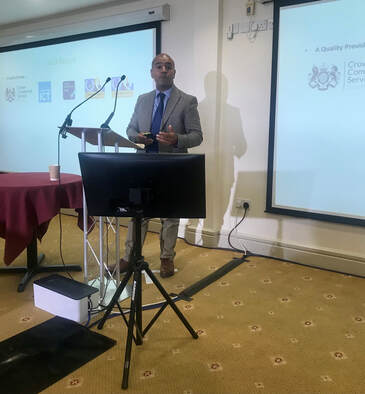 A big and important thank you to our delegates for attending the conference today. SWIFT was honoured and humbled to welcome you. Your time was not taken for granted. A grateful thank you to the SWIFT sponsors whose support enabled SWIFT to provide the conference at a reasonable cost. Thank you to Computeam and Arbor and to Account Director, Shamoon Dean for presenting on how Computeam can help to improving outcomes for schools through technology and the four P’s: People, Passion, Purpose and Proud. Thank you to award-winning immersive learning platform Lyfta for their powerful, interactive and curriculum-aligned lessons that help to bring learning to life with a 360 degree “window into the lives of people;” and whose vision is that children will feel like they have been to every country in the world and understand we are all interconnected. Thank you to Adrian Henley from Towergate Insurance who works with schools in the necessary world of insurance and tailors policies for schools - be it for cyber insurance, travel, staff sickness, contracts and engineering.  Finally, thank you to SW Conferences for organising the conference market-place and all the stall-holders for sharing their dynamic and exciting products: Applicaa Ltd Babcock LDP Computeam – Sponsor Cornerstone English Hub Courageous Leadership Create Development Ltd dbdplay Ltd Fun & Active Playgrounds Goosemoor Educatering InVentry Lighthouse Media Lyfta Mighty Writer Milsted Langdon Nayamba School SchoolPro School Spider Science Learning Partnership Teaching Personnel TME South West Ltd Towergate Insurance Wolferstans LLP You can read more in our SWIFT 2022 Summer Conference booklet. Report by Jude Owens, PA to the SWIFT Executive Team
MAKE South West Exhibition Centre in Bovey Tracey was the perfect location for the SWIFT and Ventrus Multi Academy Trust Secondary Art Teachers Conference for our Secondary Art Professional Community. It was great for over 30 Secondary Art Teachers from across the South West to be able to gather face to face to hear from inspiring speakers and get stuck into practical 3D Art. The morning started with a welcome from Sam Eyre and Tim Wightman, our SWIFT Professional Community Leads, and Ian Wilkins giving everyone an understanding of what MAKE South West is all about and how it can support schools. This was followed by Natalie Ryrie, Curriculum Development Lead from Education South West who gave an inspiring talk around curriculum design in Secondary Art. After this it was time to get creative. The sun shone on half of the group as they crafted their stone carving skills whilst the other half had opportunity to look around the exhibitions to gain inspiration in order to make a 3D model, before swapping round so that everyone had opportunity to experience both workshops. After lunch, Sculptor Mark Gregory was the keynote to wrap up the day’s events.
This inspiring and positive day of Art was only the beginning. The group networked throughout the day to make sure that they keep in contact and be part of next year’s Professional Community sessions. Report by Chris Barnett and Shannon Stacey, Ventrus Multi Academy Trust Earlier this term, Director of Kingsbridge Research School, Jon Eaton led a professional development session for SWIFT Directors based on the Education Endowment Foundation’s Professional Development Guidance report. The recommendations from the report state:
Essentially, when designing professional development, consider the 14 recommended EEF mechanisms as a checklist to strengthen the effectiveness of training as part of the implementation process, along with other strategies, for example, coaching. The follow-up session looked at a Theory of Change as an implementation tool to inform programme and intervention design. A Theory of Change can be used to improve communication, motivation and programme design. Showing the causal chain behind a programme supports deeper thinking about exactly what the programme is supposed to achieve and how. By working backwards from the desired outcome, via the intermediate outcomes, to the original problem (“This leads to this, leads to that…”), we also help develop a shared understanding. Another bonus for schools is improved evaluation. A Theory of Change helps leaders identify weaknesses in planning, leading to clearer sense of what to evaluate. Otherwise, the danger can be that assumptions are made. Jon cited a Kingsbridge Research School project which used the Theory of Change model to develop an improved transition experience in Maths, involving Maths staff, CODE Maths Hub, CEOs and school leaders. By the end of the session, our Directors were enthused, engaged and keen to identify a shared SWIFT Delivery Team project in order to put into effect this gift of a logic and clarity to energise their combined CPD delivery. May our schools find the SWIFT 2022 – 2023 programmes all the more measured and motivating for you and your colleagues. Report by Jude Owens, PA to the SWIFT Executive Team Kingsbridge Research School Teaching and Learning Series 2022 - 2023
Session 1 | Designing Effective Professional Development | Friday 14 October 2022 | 0930 – 1100 | Online Session 2 | Effective Modelling in the Classroom | Friday 20 January 2023 | 0930 – 1100 | Online Session 3 | Designing a Theory of Change | Monday 17 April 2023 | 0930 – 1200 | Coombeshead Academy Listening to celebrated poet, children's author, presenter and former Children's Laureate, Michael Rosen makes me wish I were a primary school teacher, a Secondary Teacher of English – or even better perhaps…a child hiding in a corner with a book, or looking forward to my bedtime story with a loved one. This Reading for Pleasure session introduced by Ilsham DfE National English Hub Lead, Danni Cooke, and Early Years and Phonics Specialist Leader of Education with the Learning Academy Partnership was always going to be a treat like reading a gripping good book. Michael’s credentials to talk on this lovely literacy topic are aplenty. A parent himself, actively working in schools leading workshops and as a writer in residence, television presenter, with a PHD in reading and writing and currently Professor of Children’s Literature at Goldsmiths, University of London in which a module studies and researches the best ways to approach children’s books in classrooms with a book of teachers’ projects due to be published in the autumn. Children benefit from “reading widely and often” beyond the classroom that can be seen in test results and attainment/achievement and ultimately, the years that children stay in education. Fact! We know it and believe it. But empirically, it is based on the esteemed longitudinal study, “Family Scholarly Culture and Educational Success: Books and Schooling in 27 nations,” by M.D.R. Evans, Jonathan Kelley, Joanna Sikorac and Donald J. Treimand from representative national samples across 27 nations, and with over 70,000 cases. “Children growing up in homes with books get three years more schooling than children from bookless homes, independent of their parents’ education, occupation, and class. This is as great an advantage as having university educated rather than unschooled parents, and twice the advantage of having a professional rather than an unskilled father.” In a lively storytime session, Michael read from Maurice Sendak’s 1960s children’s book, “Where the Wild Things Are” (cue lots of scary atmospheric pictures) as he skilfully guided the audience to see the story from a child’s eyes (and ears!), interpreting the words, pictures and concepts. And a new concept for me, this was part of Early Years and Year 1 pupils learning about the “interiority.” Engaging, thought-provoking and certainly reinforced the audience’s love of reading and the wish to share this love with children. In this value-added talk, so, to the takeaway tips and Michael Rosen’s Top Strategies to create a reading culture in schools – all of which are doable and dynamic, so without further ado... 1. Home School Liaison Mindful that some parents might not be literate, might have language difficulties, might have their own preconceptions of schools and teachers, there’s value in developing a home school culture. Set up a Home School Reading Committee to act as “Book Champions.” Organise bring and buy sales to encourage parents and pupils that sharing books is normal - and reach out to parents! 2. Hold Book and Reading Events Get everyone excited! Book sales. Book swaps. Second-hand bookshops. Enact book dramatisations and invite parents to watch and play out a story. 3. Appoint a School Librarian But what about sharing a School Librarian across a number of schools in a Trust or locally? 4. Share Information on Local Libraries Yes, we know the story about our national library service… Keep parents informed. Some might think they have to pay to use the library. Tell them they can borrow the books! 5. Set Up School Book Groups Let the School Book Group influence others with their reading ideas and discussions. 6. Adopt an Author or Illustrator Why not?! A win-win for the school and the author! 7. Making Books Dignify the making of books. Make the children the authors and celebrate the joy of books and reading. 8. Regular Activities Nourish activities with books. Think fiction poetry, music, guides to sites. 9. Show your Emotion about Special Books As teachers and staff, share books that mean so much to you. Bring in cherished books, talk about them and say why they are cherished. 10. Book Reviews To get started online, see: https://booksforkeeps.co.uk/ http://www.lovemybooks.co.uk/ https://www.lovereading.co.uk/ https://www.booksfortopics.com/ Print and pin-up in the classroom book reviews from newspapers and magazines AND of course, get children to write their own 11. Train Colleagues and Children on Children’s Literature Set up reading for pleasure groups and study children’s literature. 20 minutes after school. Booklovers always like an insight into a favourite author’s favourite books. You heard it here that Michael’s favourite books are “Emil and the Detectives” by Erich Kastner (for older children) and “Clown” by Quentin Blake (for younger), and in the realm of poetry, Wilfred Owen’s “Dulce and Decorum est” and “Down Behind the Dustbin” by Mr Michael Rosen no less. We thank Michael for his uplifting talk that makes reading for pleasure palpably so and to Ilsham English Hub for hosting this event. Watch out for the Goldsmiths, University of London “Children’s Literature in Action” free e-book due to be published in September. Report by Jude Owens, PA to the Executive SWIFT Team For more information and inspiration from Michael see his YouTube channel: More RFP CPD from Ilsham English Hub Ilsham English Hub are providing the following FREE TO ACCESS Reading for Pleasure offer of support for the next academic year: Teachers as Readers Group A Open University/UKLA evidence informed practice CPD. Open to all! There will be six informal, friendly and supportive sessions to help develop evidence informed practice, widening our knowledge of children's literature and other texts, enriching or Reading for Pleasure pedagogy and documenting the impact of children as readers. Session 1 | Wednesday 12 October 2022 Session 2 | Wednesday 23 November 2022 Session 3 | Wednesday 18 January 2023 Session 4 | Wednesday 15 March 2023 Session 5 | Wednesday 24 May 2023 Session 6 | Wednesday 21 June 2023 From 1600 to 1730 | Zoom There is an expectation that attendees try to attend all the sessions. Transforming your School Reading Culture (TSRC) Programme The TSRC programme is a sustained, research based CPD programme aimed at Primary English Leads. During the course of the programme participants will engage deeply with reading for pleasure pedagogy and leadership theory to transform their school’s reading culture. Participants will attend five sessions and complete gap tasks in between sessions: Core Session 1 | Wednesday 12 October 2022 | Reading for Pleasure: a whole school culture Core Session 2 | Wednesday 23 November 2022 | Creating whole school change Core Session 3 | Wednesday 18 January 2023 | Creating a reading school: structural changes Core Session 4 | Wednesday 15 March 2023 | Creating a reading school: behavioural changes Core Session 5 | Wednesday 21 June 2023 | Celebrating impact and sustaining change From 1230 to 1500 | Zoom There is an expectation that attendees try to attend all the sessions. The gap tasks will be related to developing participants’ own knowledge of children’s literature, understanding of reading for pleasure pedagogy and developing the reading for pleasure culture in their school. Audits
Work is underway for Autumn Term audits where Ilsham English Hub might be able to help your school with further personalised support and access to funding. For more information contact Ilsham DfE National English Hub Lead, Danni Cooke.  Welcome to Issue 11 of the SWIFT Events Newsletter You will find courses, events, conferences and training from our partners to support your professional development and enhance the work of your school. Simply click on the booking link to the course you are interested in to get more details or book straight on! Featured in this issue: Masterclass Series The Subject Masterclass Series provides in-depth subject development, focusing on subject pedagogy, curriculum design and assessment. Design and delivery is in partnership with leading national experts. A Masterclass series is typically 4-6 twilight sessions through the academic year targeted at teachers and subject leaders. Highlighted Programmes:
|
SWIFT News
|
SPONSORED BY
Join us, be a part of our SWIFT community |
© COPYRIGHT 2022 SOUTH WEST INSTITUTE FOR TEACHING SWIFT. ALL RIGHTS RESERVED | Website by brightblueC
VIEW OUR PRIVACY NOTICES | VIEW OUR COURSE T&CS
VIEW OUR PRIVACY NOTICES | VIEW OUR COURSE T&CS


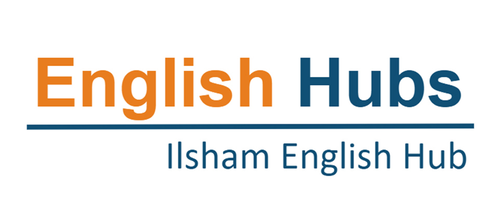
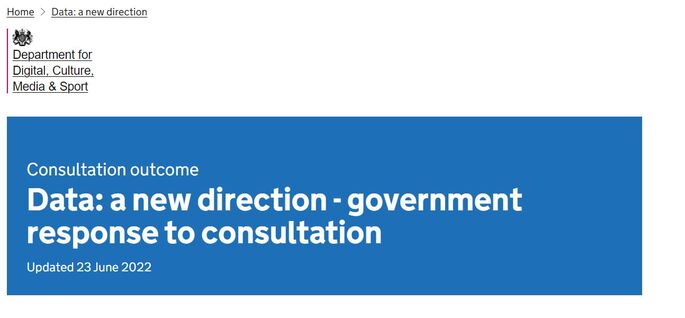
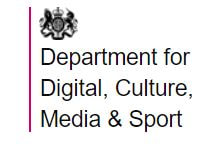

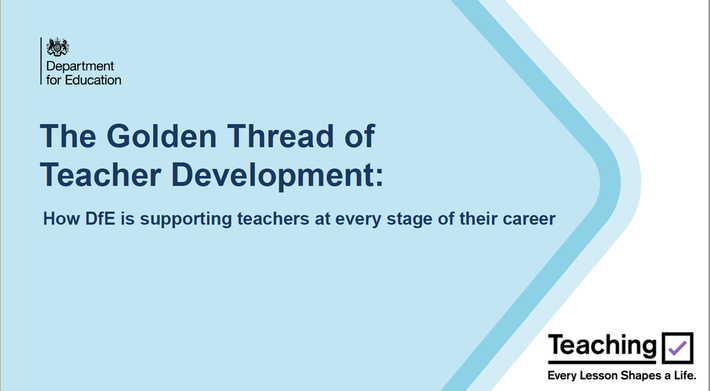
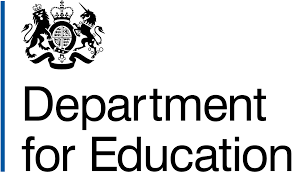
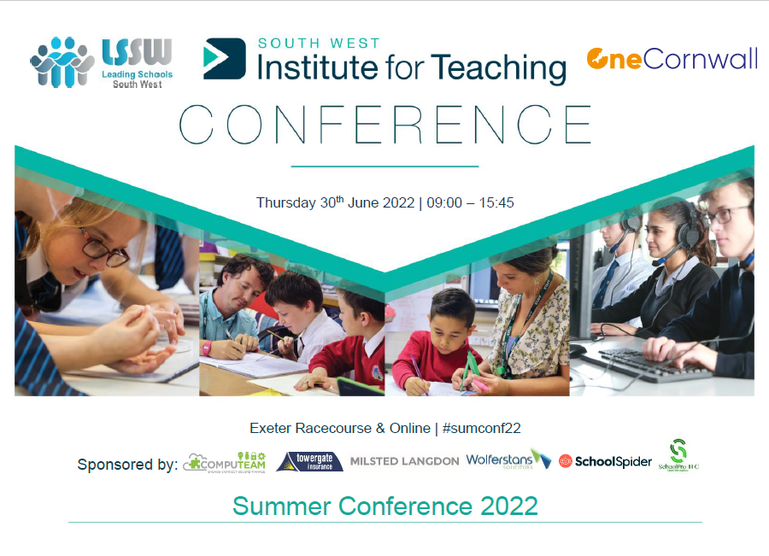
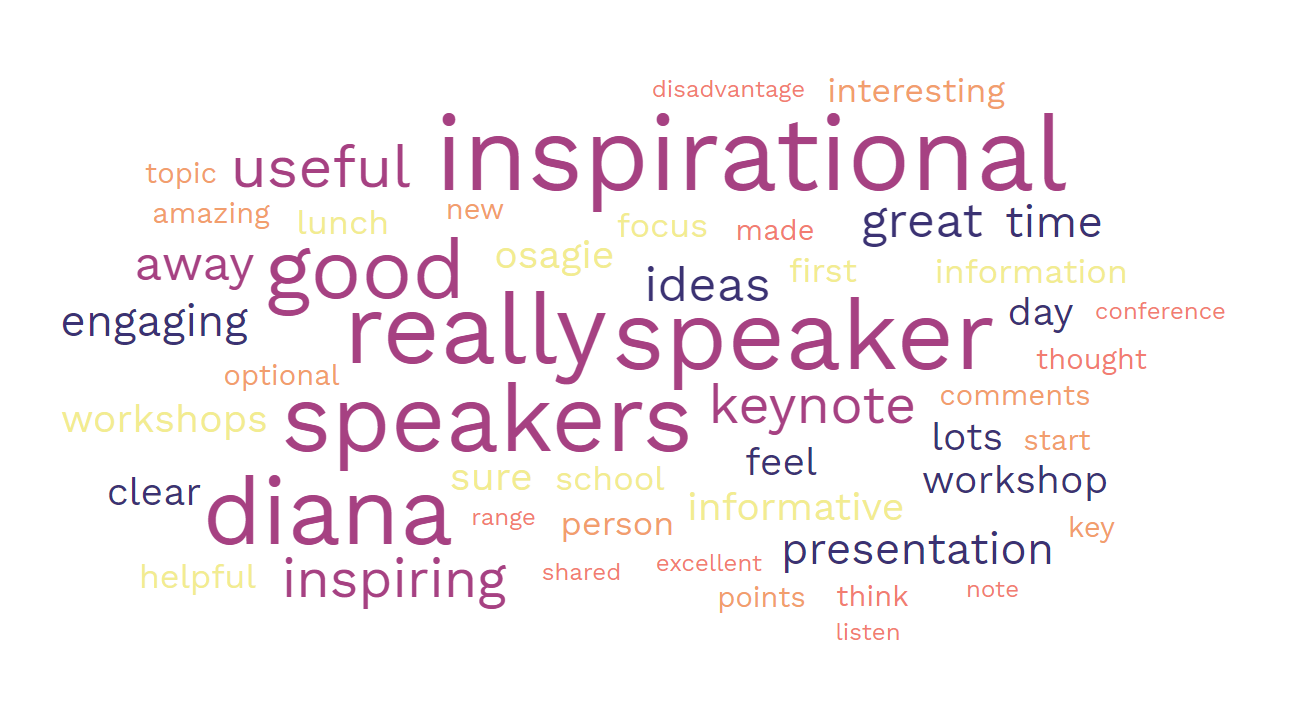






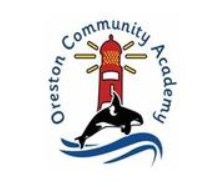
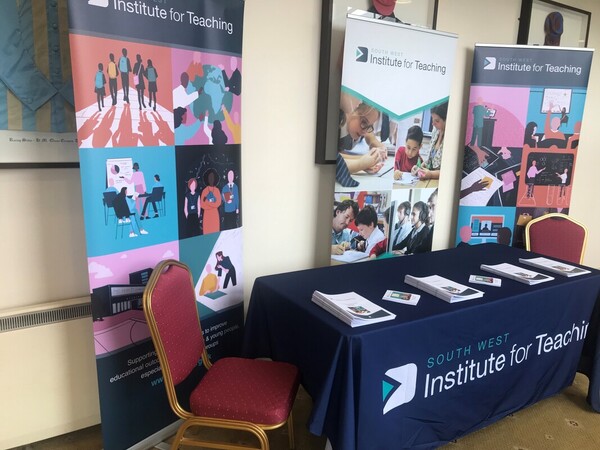
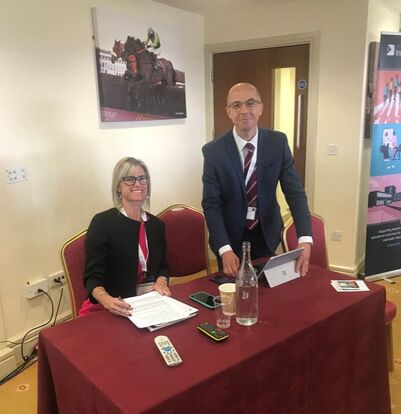
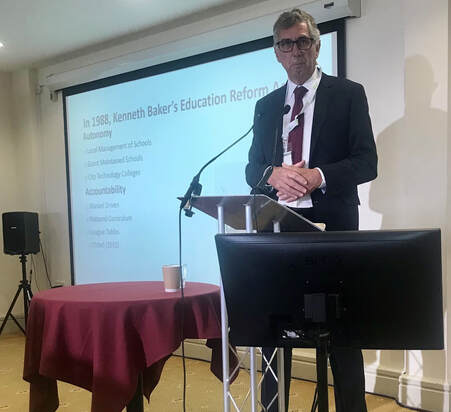

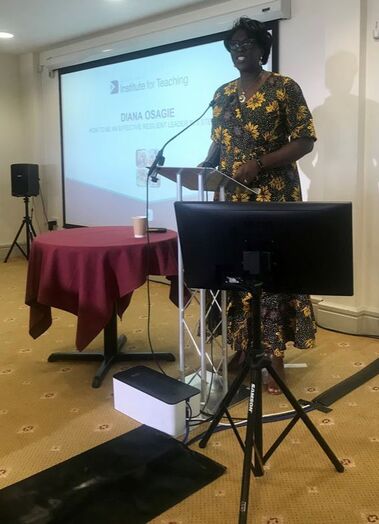
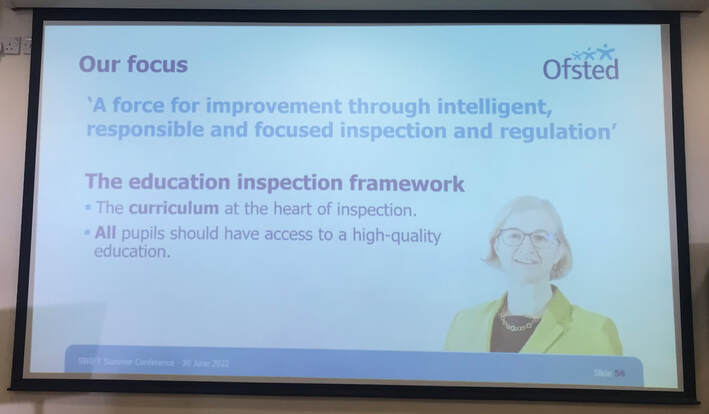
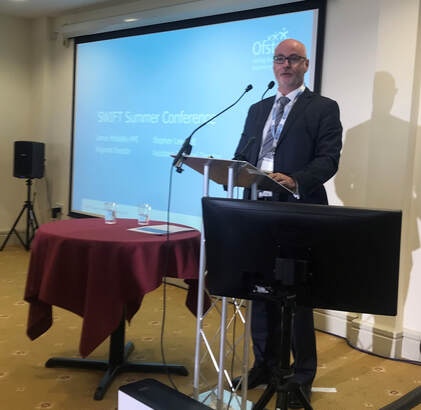
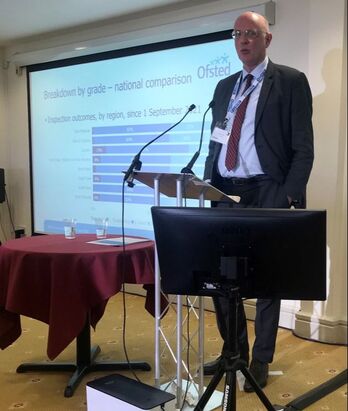
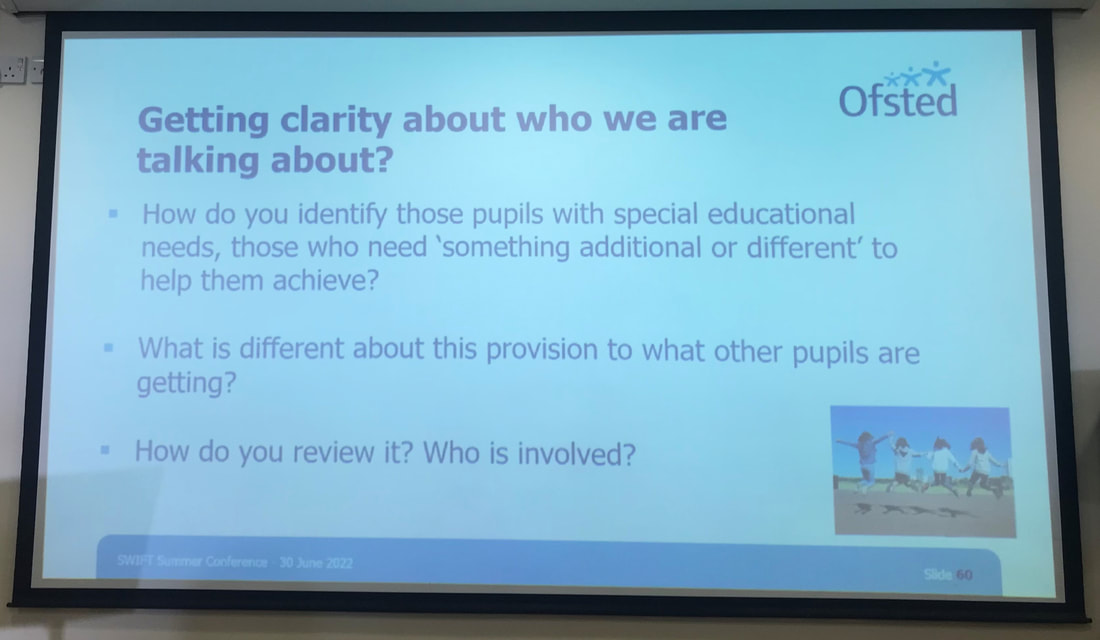
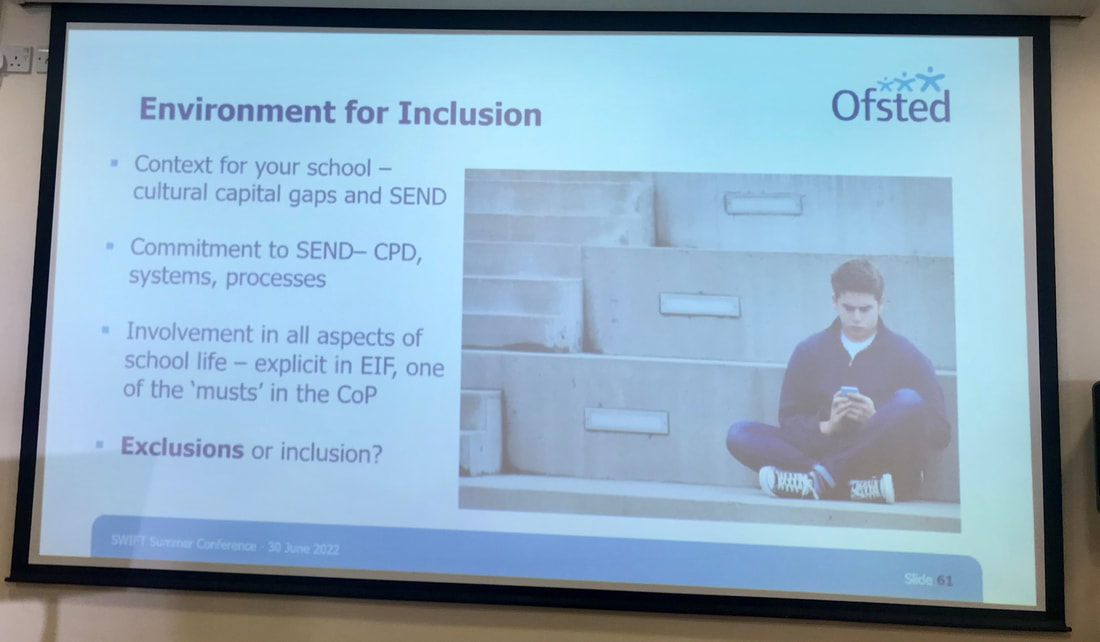
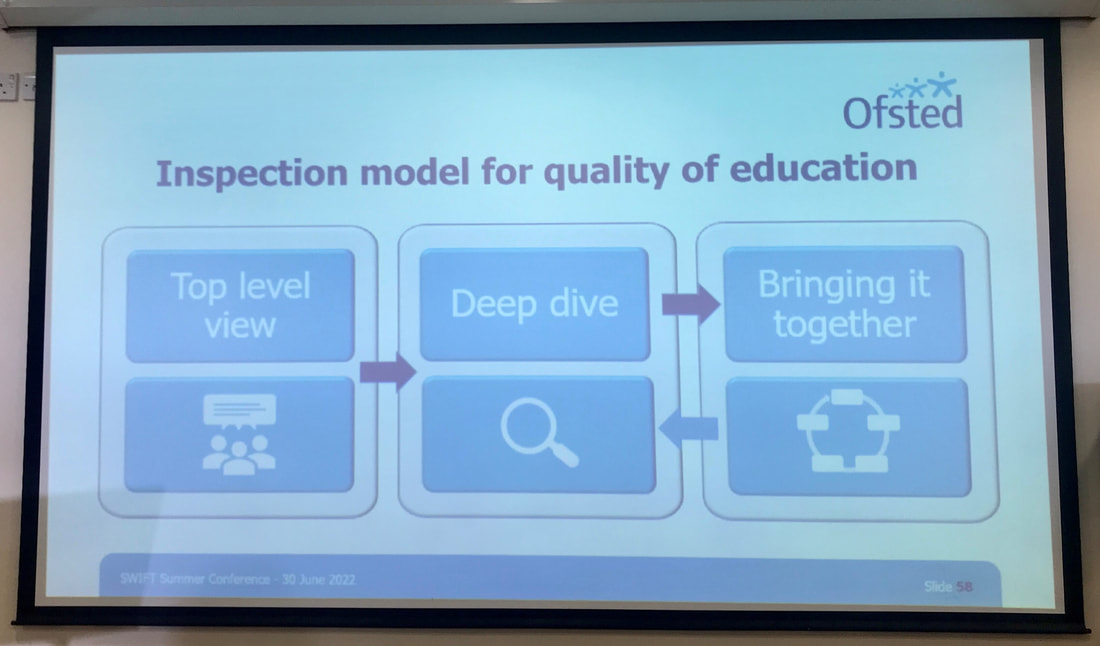
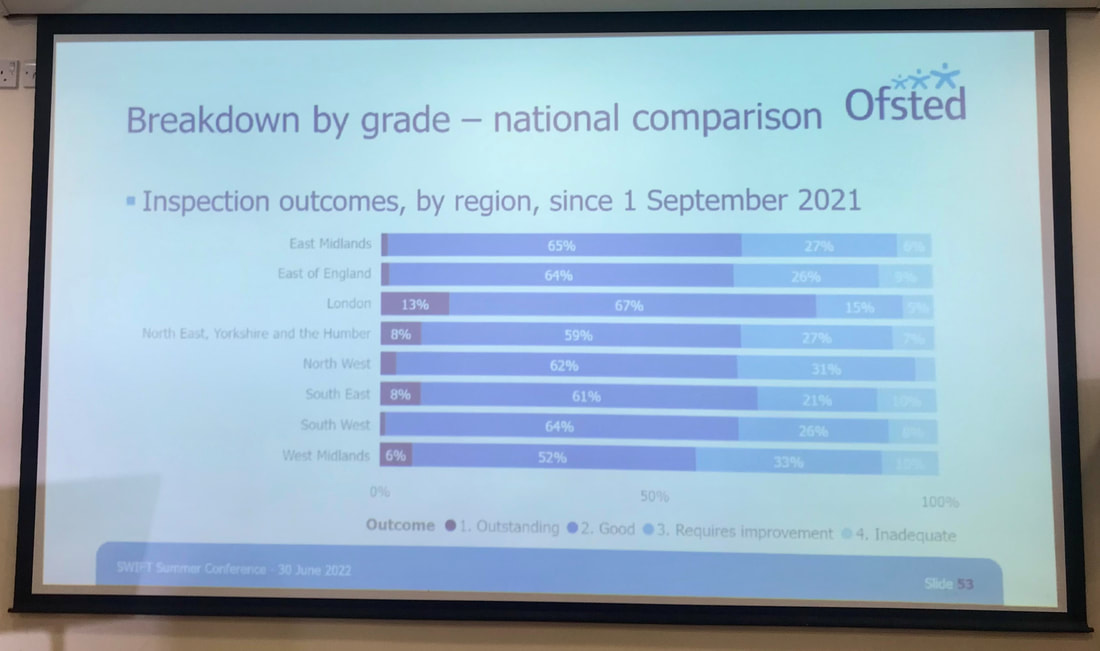
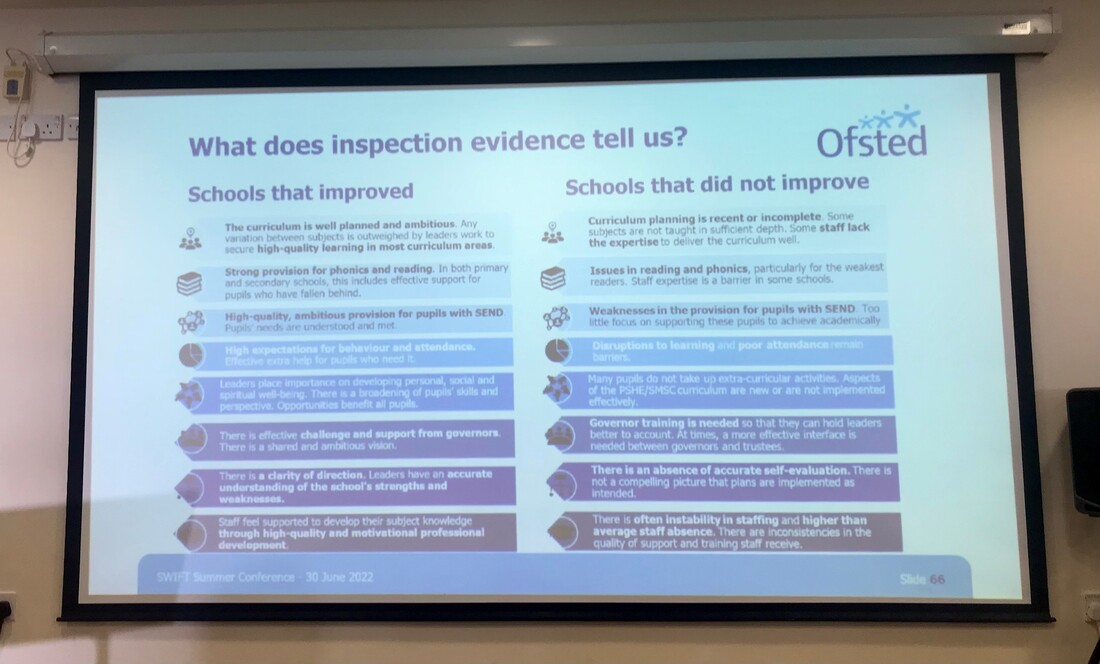
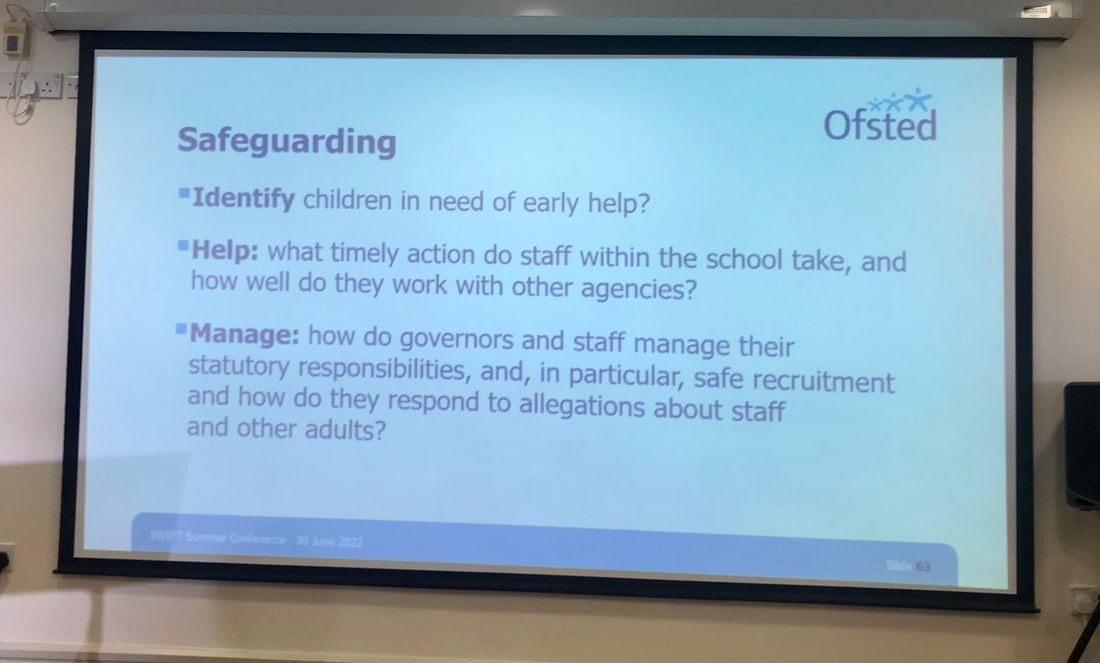
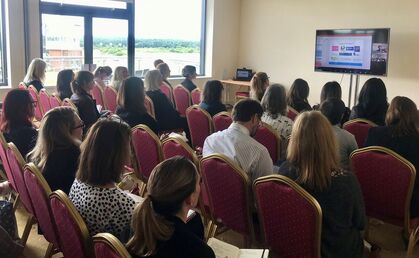
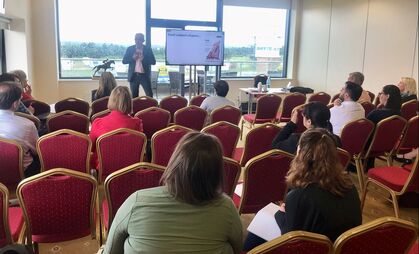
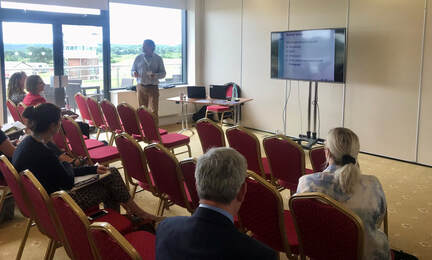
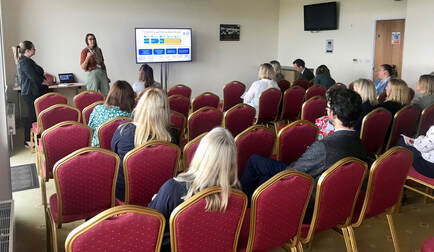
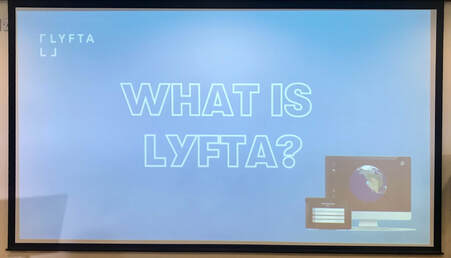
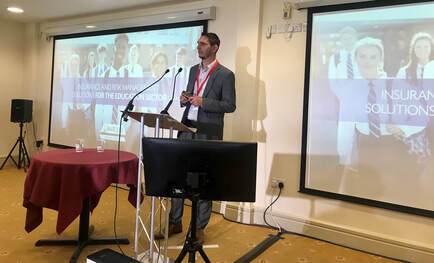



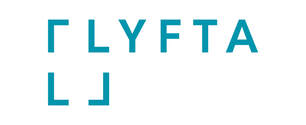




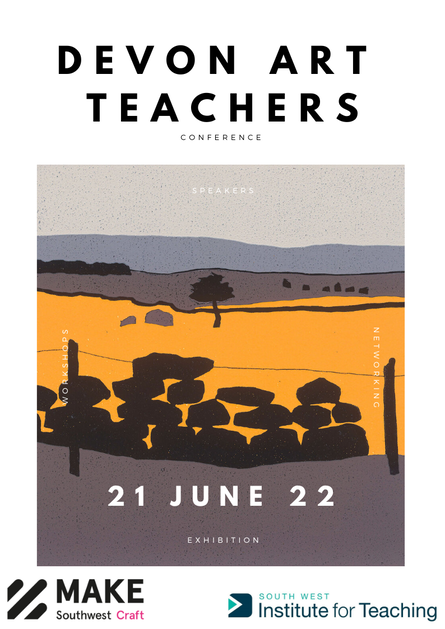
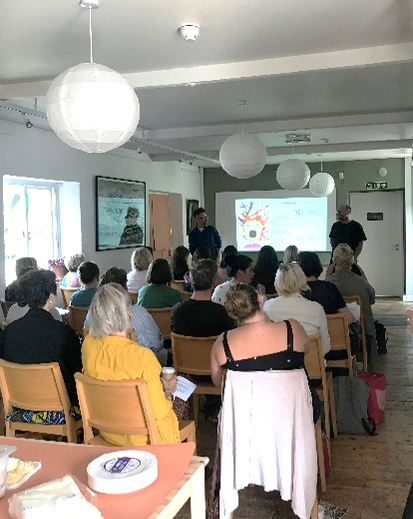




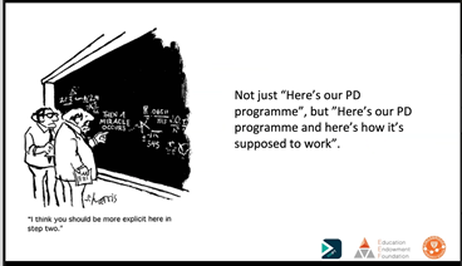
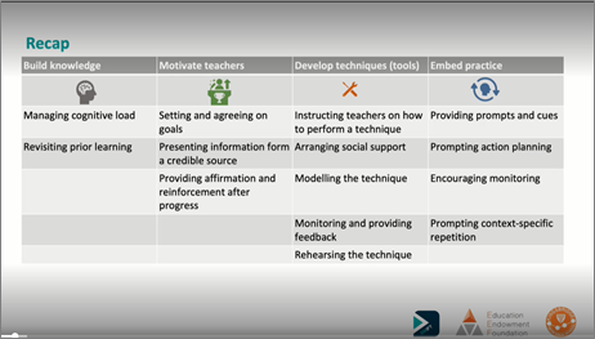
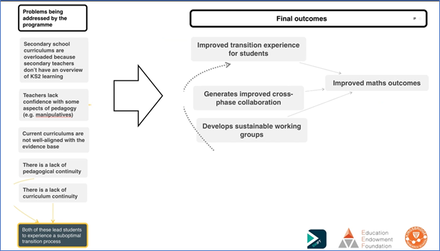
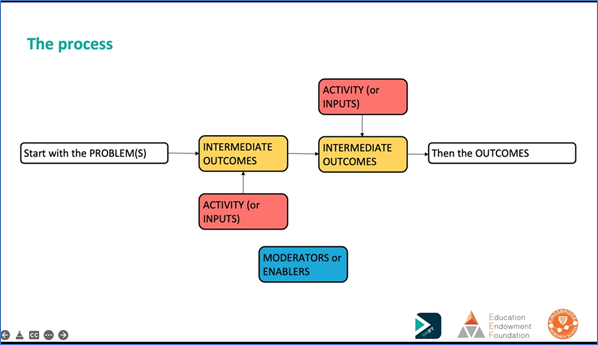




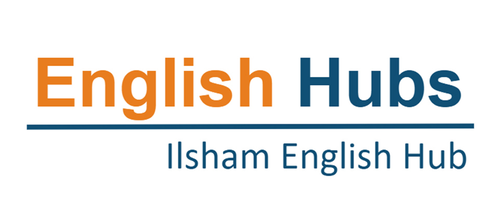
 RSS Feed
RSS Feed





